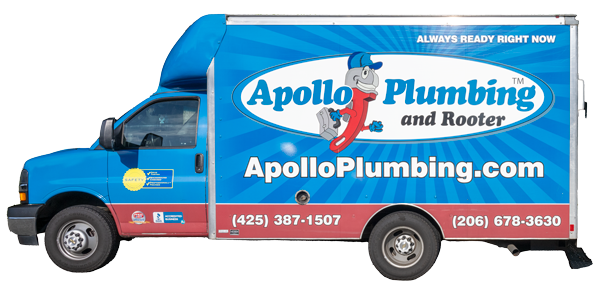 Water softeners are a beneficial appliance for many households, especially those dealing with hard water issues. They help protect your plumbing, enhance the efficiency of your appliances, and make daily chores easier.
Water softeners are a beneficial appliance for many households, especially those dealing with hard water issues. They help protect your plumbing, enhance the efficiency of your appliances, and make daily chores easier.
However, like any appliance, water softeners have a lifespan and will eventually need replacing. In this article, how long waster softeners typically last, seven signs that indicate it’s time for a replacement, and tips for maintaining your water softener to extend its life.
How Long Will a Water Softener Last?
The lifespan of a water softener varies depending on the type, brand, and level of maintenance. Generally, water softeners last between 10 to 15 years. However, some high-quality systems can last up to 20 years with proper care.
Regular maintenance and timely replacement of parts can extend the life of your water softener, ensuring it continues to function efficiently.
7 Signs You Need to Replace Your Water Softener
 It’s important to recognize the signs that indicate your water softener is nearing the end of its life. Here are seven key indicators:
It’s important to recognize the signs that indicate your water softener is nearing the end of its life. Here are seven key indicators:
1. Hard Water Symptoms Return
One of the clearest signs that your water softener needs replacement is the return of hard water symptoms. If you notice scale buildup on faucets, soap scum in the shower, or stiff laundry, it’s likely that your water softener is no longer functioning effectively.
2. Reduced Water Pressure
A significant drop in water pressure can indicate a clogged or failing water softener. If you’ve ruled out other causes, such as blocked pipes, it might be time to replace your water softener.
3. Increased Salt Usage
If you find yourself adding salt to your brine tank more frequently than usual, it could be a sign that your water softener is no longer working efficiently. Excessive salt consumption indicates that the system is struggling to soften the water.
4. Unpleasant Taste or Odor
A functioning water softener should improve the taste and smell of your water. If you notice a metallic taste or a foul odor, it might be a sign that your water softener needs replacing.
5. Frequent Repairs
If your water softener requires frequent repairs, it might be more cost-effective to replace the unit. Continuous breakdowns and the associated repair costs can add up, making a new water softener a better investment.
6. Age of the Unit
As mentioned earlier, most water softeners last between 10 to 15 years. If your unit is approaching or has surpassed this age range, it’s time to consider a replacement to avoid sudden failures.
7. Inefficient Regeneration
If your water softener is not regenerating properly, it won’t be able to remove hard minerals effectively. This can lead to hard water problems and indicates that the system might be failing and in need of replacement.
How to Maintain Your Water Softener for a Longer Lifespan
Proper maintenance can extend the life of your water softener, ensuring it continues to operate efficiently. Here are some tips to help you maintain your unit:
1. Regularly Check Salt Levels
Keep an eye on the salt levels in the brine tank and refill as needed. Make sure the salt is of high quality to prevent bridging and other issues.
2. Clean the Brine Tank
Periodically clean the brine tank to remove any sediment or buildup. This helps maintain the efficiency of the ion exchange process.
3. Inspect the System for Leaks
Regularly inspect your water softener for any leaks or damage. Addressing small issues early can prevent major problems later on.
4. Schedule Professional Maintenance
Consider scheduling annual maintenance with a professional. They can check the system’s components, clean the resin bed, and make any necessary adjustments to keep your water softener running smoothly.
5. Use the Right Type of Salt
Using the right type of salt is crucial for the performance of your water softener. Refer to the manufacturer’s recommendations to ensure you’re using the appropriate salt for your system.
6. Check for Salt Bridges
Salt bridges can form in the brine tank, preventing the salt from dissolving properly. Regularly check for and break up any salt bridges to ensure efficient regeneration.
7. Test Your Water Regularly
Regularly testing your water can help you monitor the performance of your water softener. If you notice changes in water hardness, it might be time to service or replace the unit.
Do Plumbers Repair Water Softeners?
 Yes, plumbers can repair water softeners. They are trained to handle various plumbing appliances, including water softeners. Whether it’s a minor repair or a complete replacement, a plumber can diagnose and fix the issue.
Yes, plumbers can repair water softeners. They are trained to handle various plumbing appliances, including water softeners. Whether it’s a minor repair or a complete replacement, a plumber can diagnose and fix the issue.
If you’re experiencing problems with your water softener, contact Apollo Plumbing’s Ready Right Now Plumbers. Our team of experts can help you with repairs, maintenance, and installation, ensuring your water softener operates efficiently.
Conclusion
Recognizing when to replace your water softener is essential to maintaining the quality of your water and protecting your home’s plumbing system. By understanding the signs of a failing water softener and following proper maintenance tips, you can extend the life of your unit and enjoy the benefits of soft water.
If you need assistance with your water softener, Apollo Plumbing’s Ready Right Now Plumbers are here to help. Contact us today to ensure your water softener continues to provide the benefits you need.

